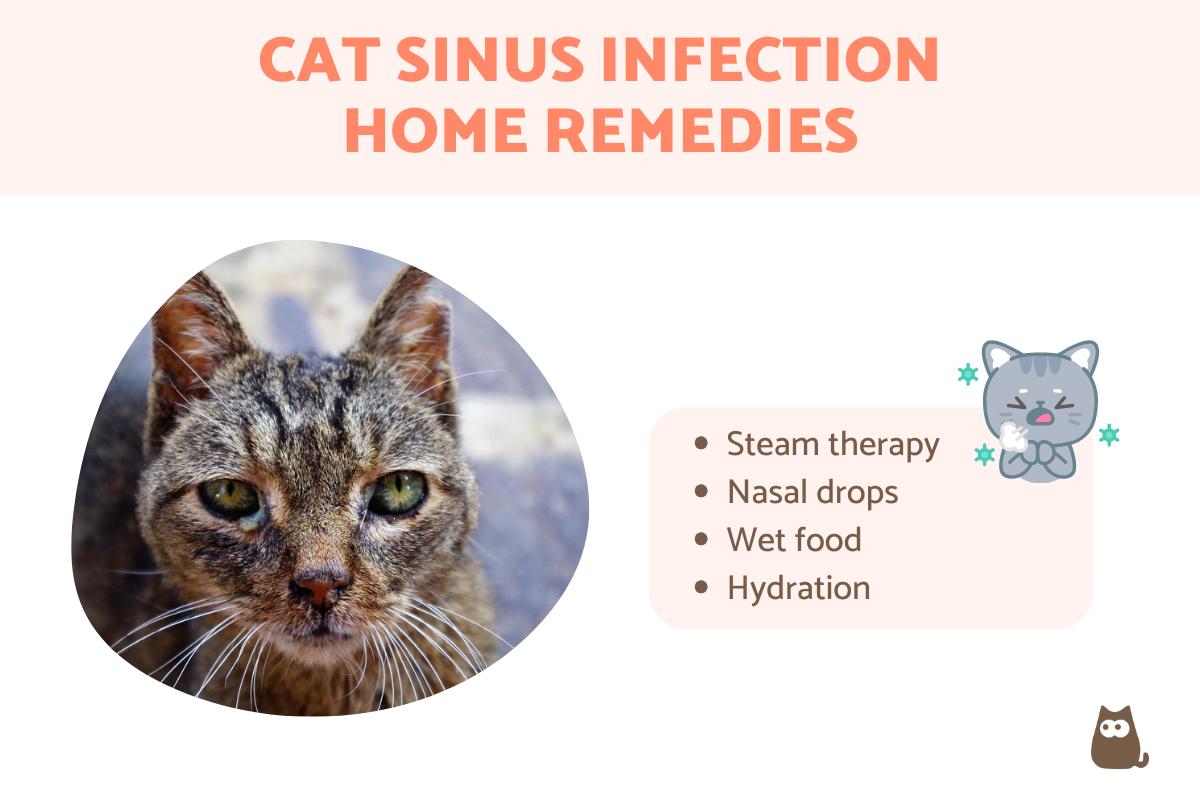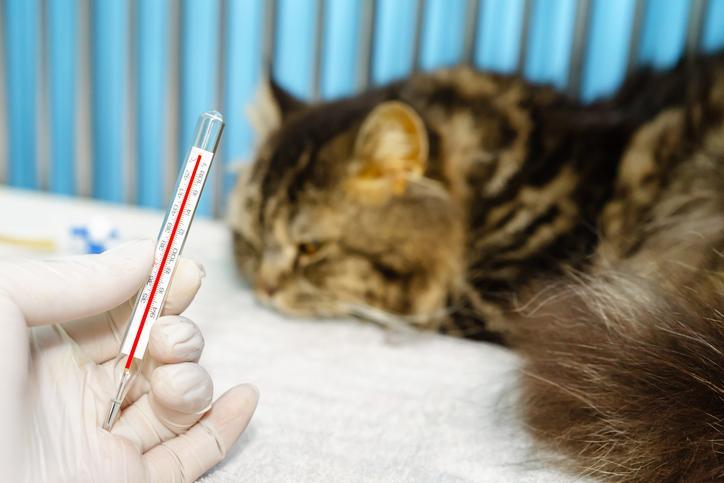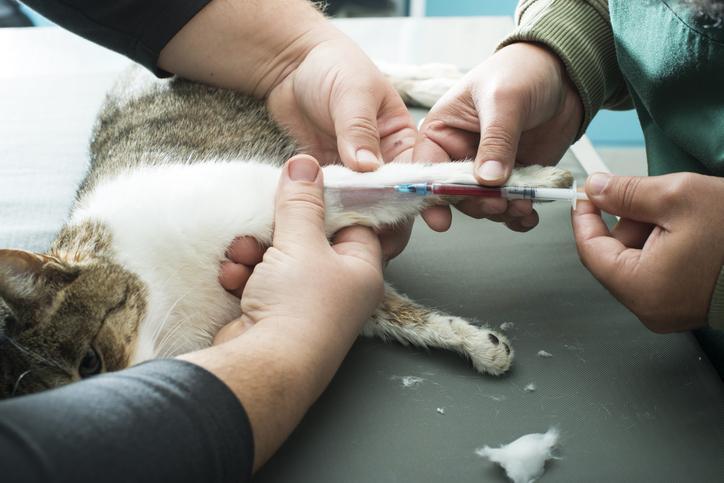Cat Sinus Infection Home Remedies

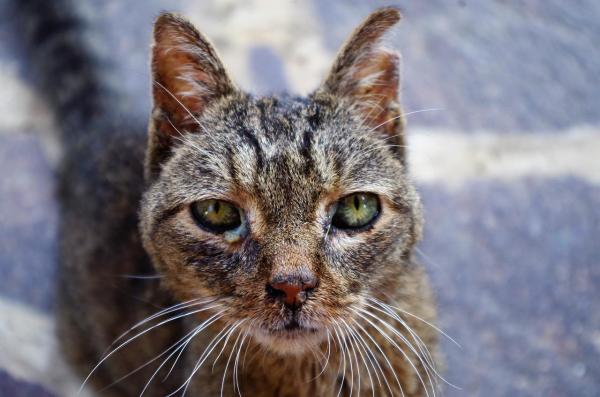

See files for Cats
Sinusitis in cats is a general term for inflamed mucous membranes of the sinuses, air-filled sacs which are located beside the nasal cavity. The purpose of the sinuses is varied, helping to filter air, protect against infection and more. It is often known as rhinosinusitis because it usually also affects the mucous membrane inside the cat's nose (rhinos means ‘nose’ in Greek). There are many underlying causes of this inflammation, but it is usually a result of virus which causes respiratory problems. These include common respiratory infections such as rhinotracheitis or calicivirus. Some very serious issues such as nasal tumors could also be a cause of feline sinusitis.
If you suspect your cat has sinusitis, you should take them to a veterinarian if the symptoms are severe or persistent. A professional can carry out a differential diagnosis and prescribe the correct treatment. If no specific treatment is needed, AnimalWised share some cat sinus infection home remedies to help you the animal recover more quickly.
Symptoms of a cat sinus infection
Rhinosinusitis in cats is the inflammation of a cat’s sinuses and nasal cavity. The nasal region begins in the nostrils and continues into the cat’s nasal cavity. It then extends to connect with the throat and chest. Inflammation in this area is usually a result of a viral infection, often spreading through other areas of the upper respiratory tract.
Since a sinus infection can spread, it can also affect other areas such as the lower respiratory tract or even resulting in ear problems for the cat. This is because all of these tissues are connected. The symptoms a cat with a sinus infection experiences will vary according to the extent of the infection. They may include the following:
- Sneezing
- Nasal discharge
- Nose scratching
- Ear scratching
- Labored breathing
- Breathing with an open mouth
- Wheezing
- Snoring
The most prominent symptoms of sinusitis in cats are nasal discharge and sneezing. The characteristics of the secretion can help us establish the diagnosis of a cat’s sinus inflammation. A blocked nose in cats may result in a more viscous nasal secretion, potentially with green or yellow pus. Some infections can have a more watery nasal discharge that is clear.
Whether due to the underlying inflammation or the agitation causes by repetitive sneezing, it is possible we will see blood come from the cat's nose. Known as epistaxis, the force of sneezing can rupture blood vessels and result in bloody discharge. However, it is important to know this is also a symptom of various other health issues. Persistent epitaxis needs diagnosis from a qualified veterinarian.
Although it is less common, it is also possible that a cat sinus infection can result in the cat having bad breath. More often, halitosis is a problem with diet or as a result of various oral health issues such as periodontal disease in cats.
Causes of a sinus infection in cats
As we have already mentioned, viral infections are usually the cause rhinosinusitis in cats. There are many types of viral sinus infections which can result in this type of inflammation. However, swelling in this area is not exclusive to viral infections. We look at some of the most common causes of a cat sinus infection:
- Feline herpesvirus (FHV): this is a serious immune-mediated disorder which can seriously lower a cat's resistance. This can develop into feline AIDS, making them very susceptible to minor infections and making them more prone to sinus infections.
- Feline calicivirus: along with rhinotracheitis, this is one of the most common causes of sinus infection in cats. While it can develop into something serious, it most often resolves on its own.
- Feline leukemia: a highly contagious feline virus which is dangerous because it can lead to other serious bacterial or viral infections.
- Bacterial infections: various bacterial infections can result in sinus inflammation. This can be a primary or secondary infection. It can even occur due to foreign objects entering the nasal cavity and becoming infected when lodged in the mucous membranes. A cat's blocked nose can worsen if a bacterial infection spreads.
- Fungal infections: another cause of cat sinus infection is fungi such as those from the Cryptococcus genus. Responsible for fungal rhinitis in cats, they can also form granulomas in cats.
- Tumors: in these cases the cat’s nasal discharge may only appear through one of the nasal passages since the tumor is blocking the other. Tumors are more common in cats over 10 years old, highlighting the possible presence of adenocarcinoma in cats. Symptoms of tumors in cats may also appear as unilateral secretion with blood. Learn more with our article on nasal cancer in cats.
- Dental problems: such as oronasal fistulas that can also lead to feline rhinitis.
- Allergies: when the allergen enters the nasal passage, the body's immune response results in an inflammation of the mucous membranes. Other symptoms may occur, such as ocular inflammation or even going into shock.
- Trauma: if a cat has an accident, physical trauma can result in inflammation of the nose and sinuses.
It should be noted that when there is a growth such as a polyp, tumor or abscess, you may notice that your cat’s face becomes deformed due to the inflammation.
For more information, take a look at our article where we look at possible reasons why my cat’s nose is bleeding.

Cat sinus infection diagnosis
If you notice that your cat is experiencing nasal discharge that does not remit, you should take the feline to a veterinarian. This secretion can interfere with your cat's sense of smell, which may lead to loss of interest in food and can aggravate the situation.
Finding the cause of rhinosinusitis is not always easy and tests have to be performed in order to find out which exact infection is causing the rhinitis. These such tests include x-rays or a rhinoscopy, to analyze the nasal cavity and detect whether or not polyps or tumors are present.
For more complicated cases, magnetic resonance or CT scans are performed, allowing for chest examinations. If the cat is experiencing additional symptoms such as anorexia or lethargy, a blood test will be necessary.
Treatment of a cat sinus infection
The treatment of sinus infection in cats depends on the cause. This is one of the reasons why it is so important to take the cat to a veterinarian, since they will be able to carry out a differential diagnosis. Depending on the cause, your vet may administer the following treatments:
- Bacterial infection: a veterinarian will likely prescribe the appropriate antibiotics to clear this up.
- Fungal infection: if the rhinitis is caused by fungi, your veterinarian will likely prescribe your cat with an antifungal medication.
- Tumors: may require surgery for removal, especially if they are polyps. May need to be be treated with chemo or radiotherapy if they are malign.
- Oral infection: if the rhinitis is cause by dental problems, the extraction of the affected tooth may be required.
It is important to note there is no specific treatment for viral sinus infections in cats. Immune system stimulators are often prescribed, as may antivirals if the infection is chronic. Antibiotics are also often prescribed to control secondary bacterial infections.
Chronic sinus infection in cats
Rhinosinusitis can become chronic. In this case, treatment will be aimed at treating the symptomatology. When it comes to rhinitis in cats, be that acute rhinitis or chronic rhinitis, self-medicating is not advised. The administration of an inappropriate drug can be very dangerous and complicate your cat’s clinical case[2].
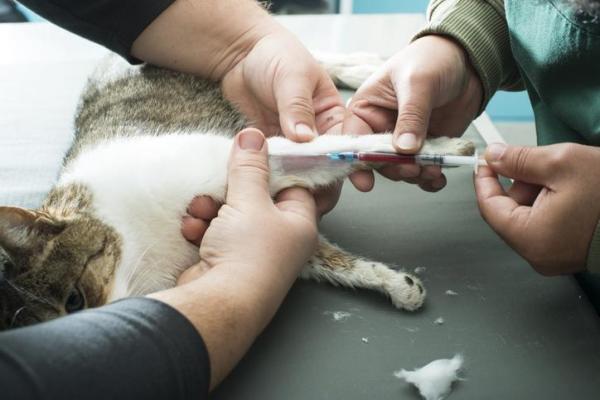
Cat sinus infection home remedies
If your cat is suffering from a blocked nose and you are waiting for an appointment from your vet, there are some steps you can take to ease your cat’s discomfort. They include:
- Steam therapy: although they will unlikely be able to tolerate a steamer with a face mask, you can place them in the bathroom and turn the shower on to very hot. Let them sit in there for 10 minutes to allow the steam to open up their airways.
- Saline drops: saline nasal drops may be used with a special applicator for cats. We need to be careful not to cause too much stress when administering. They can help clear passageways and keep the nostrils moist.
- Diet: while you should always provide the correct diet, this is especially important during times of illness. Since some cats may lose their appetite, highly palatable wet food can be used instead of kibble. This will encourage eating during times of illness.
- Hydration: ensure proper hydration by using wet food and encouraging the cat to drink. You may need to provide some water with an oral syringe if they are not drinking enough.
You may wonder if you can give the cat Vicks Vaporub when they have a cold, but this is completely contraindicated. This is because Vicks contains camphor which is highly toxic to cats.
Avoid the use of any home remedy which does not have sound scientific basis for its effects. Never replace the treatment prescribed by your veterinarian with home remedies as this can delay recovery or even cause harm. Many sinus infections in cats will resolve on their own, but we need to be sure to provide a comfortable space to help them recover. Always observe for any changes in their clinical symptoms and contact a vet when unsure.
Learn about how to help cats when they have an eye infection with our related guide.

This article is purely informative. AnimalWised does not have the authority to prescribe any veterinary treatment or create a diagnosis. We invite you to take your pet to the veterinarian if they are suffering from any condition or pain.
If you want to read similar articles to Cat Sinus Infection Home Remedies, we recommend you visit our Breathing diseases category.
1. Frey, E., Pressler, B., Guy, J., Pitulle, C., & Breitschwerdt, E. (2003). Capnocytophaga sp. isolated from a cat with chronic sinusitis and rhinitis. Journal of clinical microbiology, 41(11), 5321–5324.
https://doi.org/10.1128/JCM.41.11.5321-5324.2003
2. Reed N. (2014). Chronic rhinitis in the cat. The Veterinary clinics of North America. Small animal practice, 44(1), 33–50.
https://doi.org/10.1016/j.cvsm.2013.08.004





